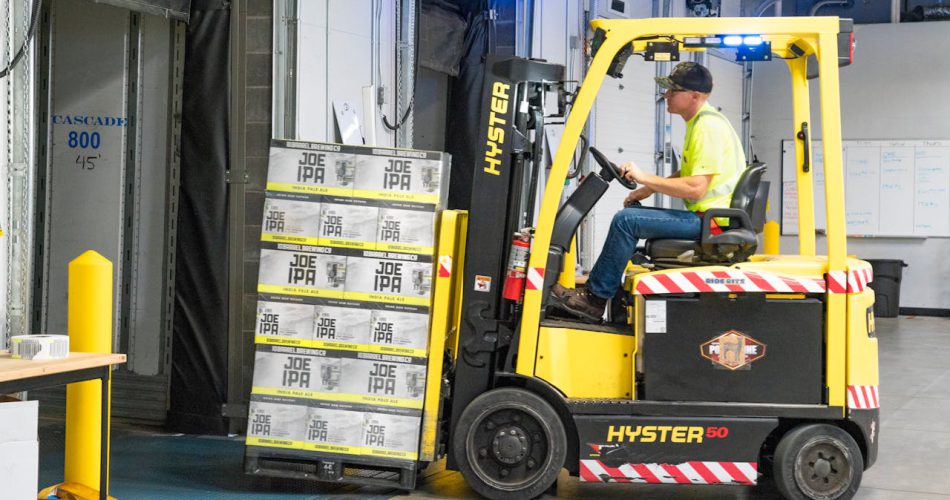Logistics is one of the cornerstones of the global economy, playing a crucial role in transporting, storing, and distributing goods. With the rise of digitalization, evolving consumer expectations, and the globalization of trade, the sector offers numerous career opportunities, ranging from operational roles on the ground to strategic and technological positions.
But what are the most important jobs in this field? Whether you are a professional considering a career change or already a part of the supply chain industry, this article highlights the 7 essential jobs in logistics. Discover their missions, the skills required, and the career prospects they offer. Follow this guide to unlock the keys to a successful career in logistics!
II – Strategic and Technological Roles in Logistics
1 – Logistics Manager
The logistics manager is responsible for overseeing and optimizing all logistics operations, including inventory management and the organization of transportation flows. Acting as a true conductor, they ensure the efficient movement of goods while keeping costs under control and meeting deadlines. Success in this role requires strong leadership, analytical skills, and proficiency in logistics management tools such as TMS and WMS. The logistics manager plays a central role in enhancing company performance and ensuring a smooth and profitable supply chain.
2 – Supply Chain strategist
The supply chain specialist plays a pivotal role in collecting and interpreting logistics data to optimize processes.
By identifying inefficiencies, they develop concrete solutions aimed at reducing costs and enhancing productivity. Success in this position requires expertise in Big Data, process modeling, and the ability to track key performance indicators (KPIs).
This role is vital because data-driven decisions enable companies to anticipate needs, manage inventory more effectively, and streamline logistics operations for greater efficiency.

Photo by Tima Miroshnichenko on Pexels
3 – Transport Manager
The transport manager is responsible for overseeing all operations related to the movement of goods, including route planning and negotiating with carriers. They also ensure that all transport activities comply with relevant regulations. Success in this role requires strong skills in strategic planning, effective relationship management with partners, and careful cost monitoring. Effective transport management is crucial as it helps reduce costs, ensures timely deliveries, and significantly enhances customer satisfaction.
4 – Logistics and Supply Chain Engineer
The logistics and supply chain engineer is responsible for designing innovative solutions to enhance logistics processes. Their work involves implementing advanced technologies, such as automation and artificial intelligence, to modernize and optimize the supply chain. This role requires strong technical expertise, proficiency in emerging technologies, and a strategic vision to align logistics operations with organizational goals. It is a crucial position for addressing modern logistics challenges, including digitalization and the shift toward more sustainable practices.
These strategic and technological roles complement operational jobs by providing comprehensive solutions to optimize the supply chain. Their contributions are indispensable for meeting the sector’s growing demands for competitiveness, efficiency, and innovation.
I – Operational Roles in Logistics
5 – Order Picker
The order picker is a key player in logistics warehouses. They ensure that orders are ready for shipment, meeting customer deadlines and specifications. Their role involves collecting, packaging, and sometimes labeling goods.
It requires organization, attention to detail, and familiarity with warehouse management systems (WMS).
This role ensures that customers receive their products quickly and accurately, directly impacting satisfaction.
6 – Warehouse Operator / Forklift Driver
The warehouse operator, often also a forklift driver, is responsible for receiving, storing, and moving goods within warehouses. This role is crucial for maintaining order and ensuring the smooth flow of internal operations.
Proficiency in handling lifting equipment, such as forklifts, and a strong understanding of storage and safety procedures are essential skills for this position. Without the expertise of a warehouse operator, operations would become disorganized, leading to delays and inefficiencies in the supply chain.

Photo by Kampus Production on Pexels
7 – Delivery Driver
The delivery driver is often the final link in the logistics chain and one of the few roles that involve direct interaction with customers. Their primary responsibility is to transport goods from point A to point B while strictly adhering to delivery deadlines.
Strong navigation skills, punctuality, and compliance with transportation regulations are essential for success in this role. Delivery drivers play a critical part in ensuring customer satisfaction and maintaining the company’s reputation.
While these operational roles form the backbone of logistics activities, strategic and technological jobs complement this dynamic by optimizing and modernizing processes. Discover them in the next section!
Conclusion
Logistics is a dynamic and ever-evolving sector, offering a multitude of opportunities for professionals seeking stimulating and diverse careers. From operational roles like order picker or delivery driver, essential to daily operations, to strategic and technological positions such as logistics manager or supply chain engineer, every role contributes to the overall performance of the supply chain.
Whether you’re drawn to hands-on tasks or responsibilities focused on analysis and innovation, there’s a job in logistics for you. In a context where digitalization, sustainability, and efficiency are top priorities, joining the logistics sector means contributing to the transformation of a vital pillar of the global economy.
Ready to find your place in this promising sector? Explore these roles and embark on an exciting and impactful professional journey!
